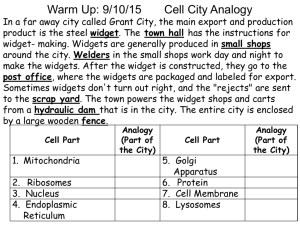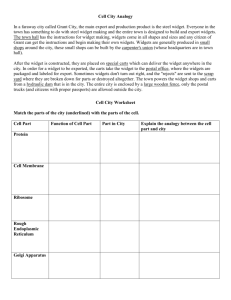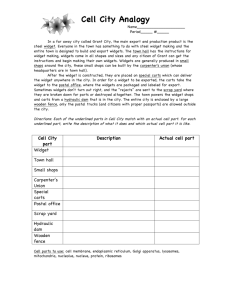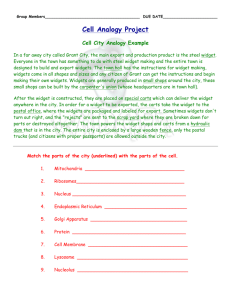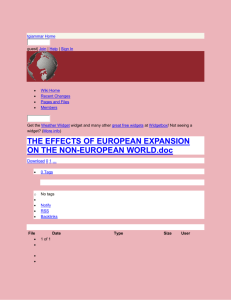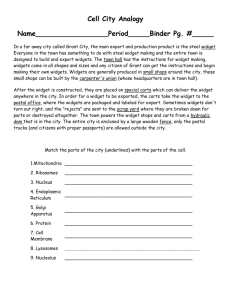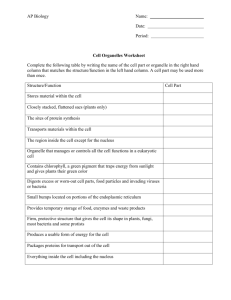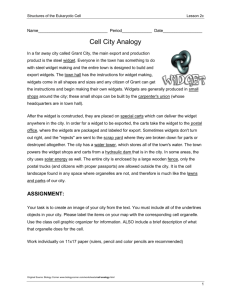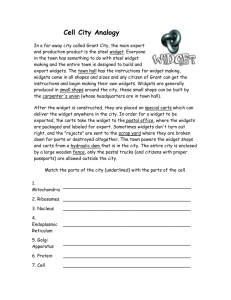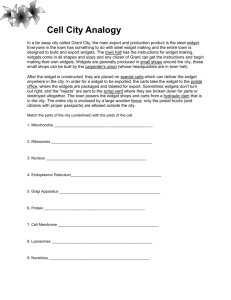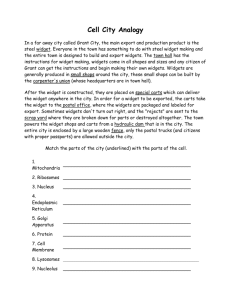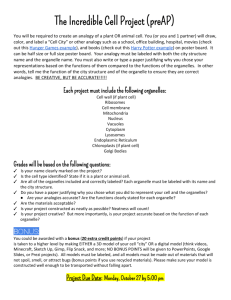Cell City Analogy - San Leandro Unified School District
advertisement
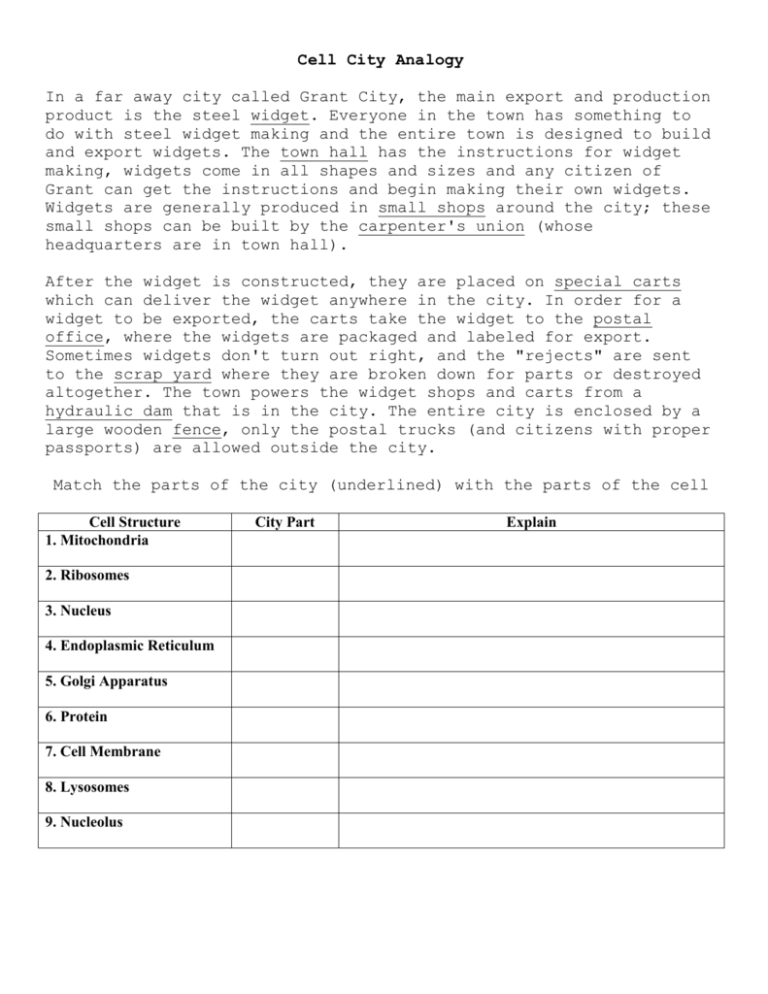
Cell City Analogy In a far away city called Grant City, the main export and production product is the steel widget. Everyone in the town has something to do with steel widget making and the entire town is designed to build and export widgets. The town hall has the instructions for widget making, widgets come in all shapes and sizes and any citizen of Grant can get the instructions and begin making their own widgets. Widgets are generally produced in small shops around the city; these small shops can be built by the carpenter's union (whose headquarters are in town hall). After the widget is constructed, they are placed on special carts which can deliver the widget anywhere in the city. In order for a widget to be exported, the carts take the widget to the postal office, where the widgets are packaged and labeled for export. Sometimes widgets don't turn out right, and the "rejects" are sent to the scrap yard where they are broken down for parts or destroyed altogether. The town powers the widget shops and carts from a hydraulic dam that is in the city. The entire city is enclosed by a large wooden fence, only the postal trucks (and citizens with proper passports) are allowed outside the city. Match the parts of the city (underlined) with the parts of the cell Cell Structure 1. Mitochondria 2. Ribosomes 3. Nucleus 4. Endoplasmic Reticulum 5. Golgi Apparatus 6. Protein 7. Cell Membrane 8. Lysosomes 9. Nucleolus City Part Explain Now make your own analogy of the cell using a different model. How is the cell like another complex thing? Soccer game? Factory? School? House? Or anything you can imagine. Make a poster illustrating your analogy. See the following pages for details. Project Requirements: You may work with one partner, or by yourself. Partners should be able to meet up outside of school. Your project will have 2 illustrations and a key: - illustration of an animal or plant cell with each organelle labeled by number and name - illustration of your model with each part labeled with the same number of its corresponding organelle on your cell illustration - a key with numbers, organelles and functions and your model’s parts and functions. - Each of your two illustrations and your key should be colored and neat. - If you use computer generated images, there must be creative input- they may be assembled from internet images but may not be complete images that you simply glue on to your poster. Organelles: Choose 10 organelles from the list below. Be sure to keep in mind which ones are found in a plant cell and which ones are found in an animal cell. nucleus, cell wall, cytoplasm, vacuole, cell membrane, chloroplast, ribosomes, golgi apparatus, mitochondria, nucleolus, lysosomes, cytoskeleton, endoplasmic reticulum, Choosing an analogy: Be creative and take some time thinking about an analogy that will be fun to do. It is all right if one or two of your part-to-part comparisons are a bit stretched as long as it is clear that you understand the real function of the cell organelle. Example of Key: Your key will include the names of the 10 organelles, the function of that organelle in the cell, the part of the facility that it is similar to and what it does in your facility. Organelle 1. nucleus 2. cytoplasm 3. cell membrane Cell function controls most cell processes and contains DNA Facility part and function Main Office: contains all of the important information and student records Grading The final project will be worth 35 points. This is equivalent to ONE TEST SCORE. You will also be graded on how well you use your time in class. CONTENT (30 points) ILLUSTRATIONS: -animal/plant cell illustration with numbers labeled -facility illustration with numbers labeled KEY: -10 organelles are listed -Accurate description of organelle function -Analogies are clear/well explained CREATIVITY (5 points) -original analogy and explanations; attractive, neat and carefully done TOTAL 5 points 5 points 5 points 5 points 10 points 5 points 35 points
